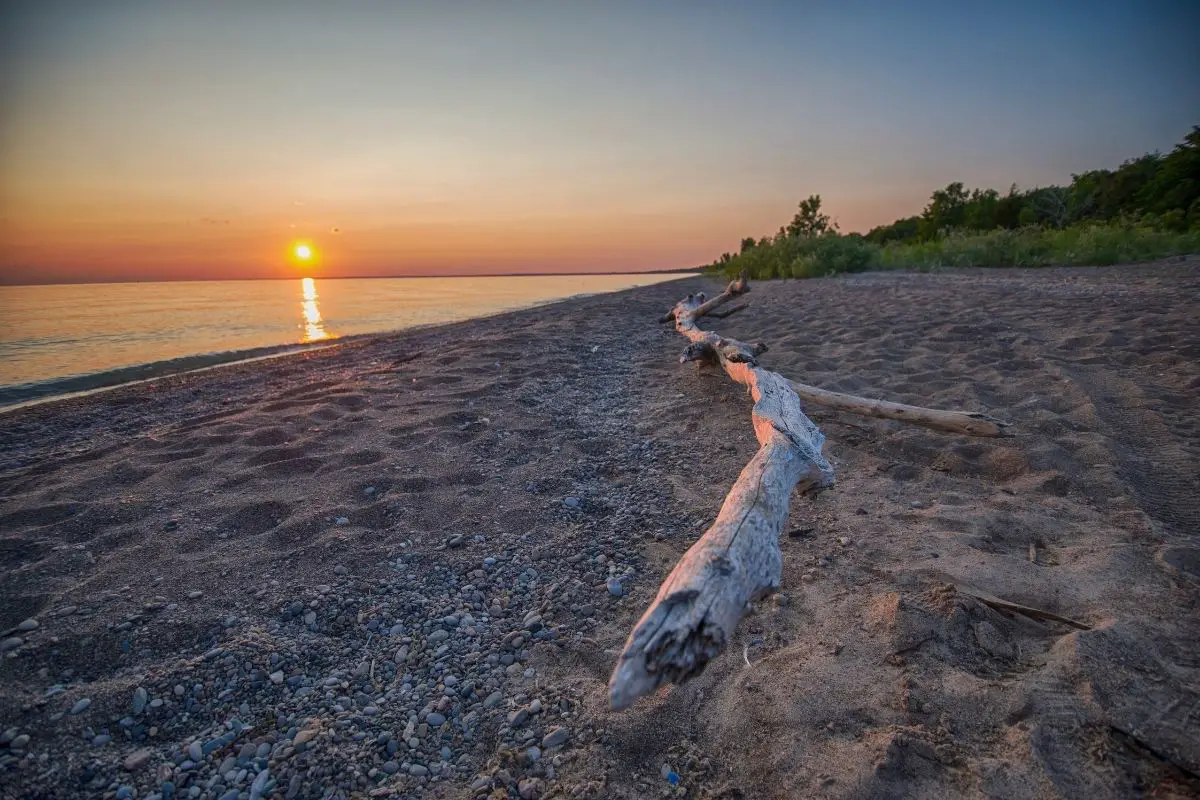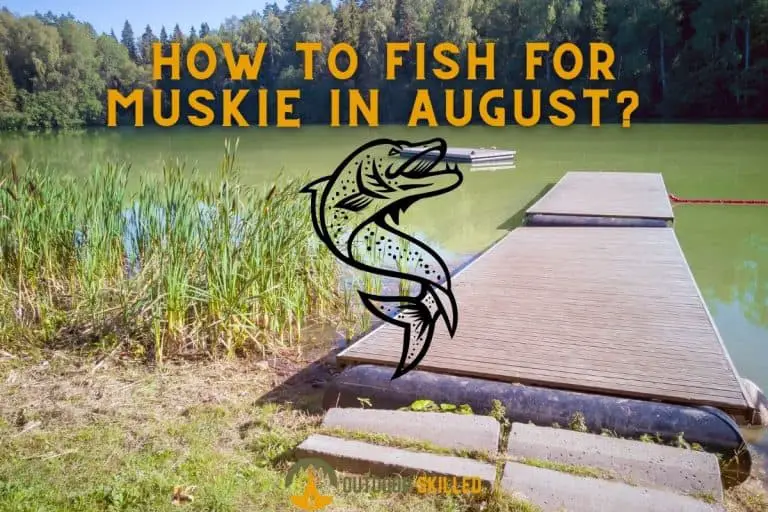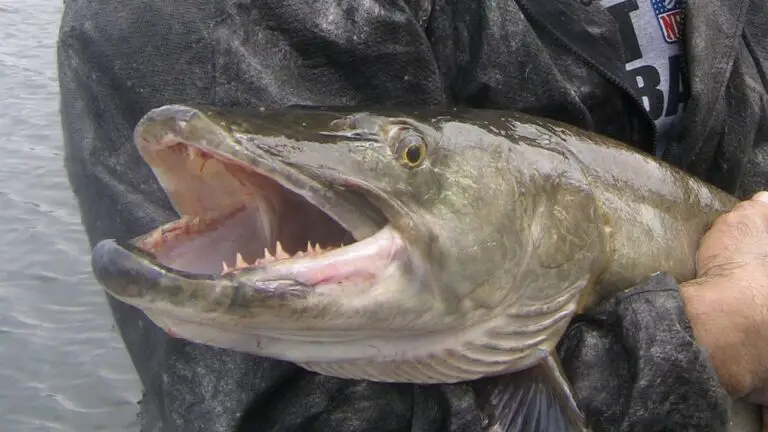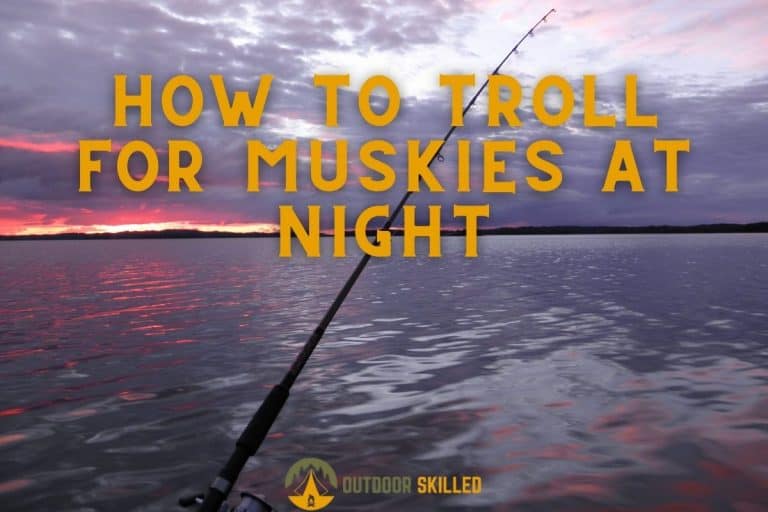Are There Muskies in Lake Erie? Top 3 Lakes to Catch the Best Muskies
Lake Erie is one of the largest and most popular great lakes in the fishing community. This impressive body of water is over 240 miles long and it’s located on the border between the US and Canada.
Despite being shallow compared to other lakes, Lake Erie is renowned for its rich waters that are stocked with a wide variety of fish species. That’s why many anglers head out there hoping to successfully land a trophy fish such as a musky.
So, are there muskies in Lake Erie? There’s a very low population of muskies in Lake Erie which is why anglers rarely catch them there. However, there are plenty of other fish species in Lake Erie including bluegill, smallmouth bass, steelhead, walleye, and yellow perch. Meanwhile, muskies are available in other lakes such as Lake Michigan, Lake St. Clair, and Lake Huron.
So, while you can catch Muskies in lake Erie, it’s going to be more difficult than it normally is, and Fishing Muskies being already hard as it is, it’s probably not worth your effort to try to catch Muskies in lake Erie. However, the area provides excellent chances of catching other fish species.
Continue reading to learn more about the fish species you can catch in Lake Erie and which lakes have a large population of muskies as well as how to target them in lakes.
Table of Contents
What Fish Can You Catch in Lake Erie?

There is a wide variety of fish species that inhabit Lake Erie. Your chances of landing a fish mainly depend on the season and temperature of the water. You also need to be prepared with the proper gear regardless of your skill level.
Now let’s take a look at some of the most common fish species that are available in Lake Erie.
Bluegill
Bluegills inhabit many streams, lakes, rivers, and ponds in North America. They are usually 6-12 inches long and weigh between 2 pounds to 4.5 pounds. They’re also omnivores, so you can target them with a wide variety of baits.
You can learn how to fish for Bluegills in my guide on using bluegills in saltwater here.
Smallmouth Bass
Smallmouth bass is one of the main reasons anglers come to Lake Erie. There are plenty of them, so you can catch from 20 to 50 fish a day if you’re in a good spot.
They can weigh between 2-6 pounds and you might even catch a trophy size smallmouth bass that weighs up to 8 pounds. You can learn how to catch smallmouth bass here. You can also check out the best Bass Boats here.
Steelhead
Steelhead trout migrate to the cooler parts of Lake Erie in the summertime then they return to their streams during the fall through spring. Lake Erie Steelhead are about 25 inches in length and can weigh between 5-6 pounds.
Walleye
Lake Erie is one of the best spots in North America to catch walleye fish. They are about 14-22 inches in length and can weigh 4-7 pounds. You might catch a trophy size walleye that weighs up to 15 pounds.
I have been catching Walleye with powerbait lately, and I’m surprised at how good it works. That’s why I wrote this guide on how to catch Walleye with powerbait here and try it out for yourself.
Yellow Perch
Yellow perch travel in schools and there are plenty of them in Lake Erie. They may grow to be 4-11 inches long and they weigh around 1-3 pounds.
Which Lakes Have a Large Population of Muskies?

Muskies are ambush predators, they’re very localized, structure-oriented, and very territorial. In North America, they can mostly be found in the Great Lakes St. Lawrence River, Hudson Bay (Red River), and Mississippi River basins.
Let’s take a closer look at the top 3 lakes with a large musky population:
Lake Michigan (Green Bay)
Green Bay has produced trophy muskies in the last 10 years. It contains an expanding population of mature musky fish that are showing signs of natural reproduction.
Lake St. Clair
Lake St. Clair’s muskie population has been affected by a recent VHS epidemic which led to maintaining healthy musky fish and thinning out the genetically inferior and weaker fish that are susceptible to diseases.
The improved water clarity and the increase of the shad population also led to a significant concentration of musky fish.
Lake Huron (Georgian Bay)
The musky population in Lake Huron is both impressive and intimidating. Trophy muskies are mainly concentrated along the eastern and northern shorelines of Georgian Bay where there is plenty of forage for big muskies.
How to Catch Muskies in Lakes?
In order to successfully catch muskies in lakes, you need to know where exactly to target them and the best times to target them. You also need to be prepared with the right kind of gear.
I have a guide on how to catch Muskies with flyfishing here that is definitely going to help you.
Where to Find Muskies in Lakes?
In lakes, muskies generally tend to stay in one area. They can often be found near areas with thick weed beds where they hunt for prey. You can also find them near irregular structures such as piles of rocks or areas where the water transitions from shallow to deep.
What Is the Best Time to Fish for Muskies in Lakes?
The best time to target muskies is around dawn and dusk when the temperature is not too cold or too warm. During these times, muskies will be more active and more likely to bite. You can follow my guide on fishing for Muskies at night to catch plenty of them when the sun is out.
What Kind of Gear Is Best for Musky Fishing in Lakes?
Anglers usually go for heavier tackle when targeting muskies because of their large size.
Your setup should include stiff fishing rods and strong reels. You can go for an 8-9 feet rod with medium-heavy power and fast action paired with a bait-casting reel. If you want some recommendations, you can check out my guide for the best baitcasting reels and my guide for the best baitcasting combos.
For the fishing line, it’s recommended to use a strong line that can withstand the heavyweight of musky fish. You can with a braided line with a 50 to 80-pound test. You can find the best braided fishing lines here.
It’s best to attach about 12 to 24 inches of fluorocarbon or steel leader between your mainline and your lure or bait. That is because muskies have razor-sharp teeth, so having a leader will prevent them from biting through your mainline.
When it comes to lures, it’s recommended to use large jigs, jerk baits, surface plugs, bucktail spinners, and topwater lures. I have a full guide on the best muskie lures here that you should definitely check out.
Related Questions
What Are the Rules and Regulations for Fishing in Lake Erie?
You need a valid fishing license for the state you’re fishing in and stamps for the species you plan to target. If you’re fishing in Canadian waters, you need to bring your passport and a Canadian outdoors card which you can easily get online.
What Do Muskies Feed on in Lakes?
Muskies are apex predators and they eat a lot of different fish species. In lakes, young muskies tend to feed on minnows, small shads, and other small baitfish while adult muskies tend to feed on yellow perch, suckers, shiners, walleyes, and smallmouth bass.
What Is the Best Fishing Technique to Catch Musky Fish?
The best fishing technique to catch muskies is casting and drifting large lures along the areas where they reside. The drifting motion of the lure will create strong action in the water which will attract musky fish to bite. This technique will also allow you to cover more water and it’s less likely to scare the muskies away.
All-Things Muskies
- Going Muskie Fishing? Get bigger catches quickly with these dead baits for Muskies and these effective lures for Muskies in all conditions.
- New to Muskie fishing? Learn how to make fishing for Muskies easier here.
- Explore the untapped potential for muskie fishing at night in this guide.
- Learn how to use live bluegill for super Muskies here.
Helpful Resources
Lake Erie & Western New York Fishing Report & Hotline
Lake Fishing Tips & Techniques
If you like this article, please share it or pin it, you can find the share buttons below. We will really appreciate it ❤️




![Why Do Muskies Swim With Their Head Out of the Water? [Simply Explained]](https://outdoorskilled.com/wp-content/uploads/2021/10/Muskie-swimming-with-the-head-above-water-768x512.jpg)



